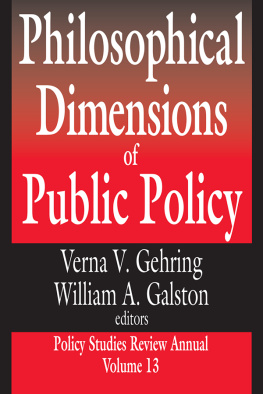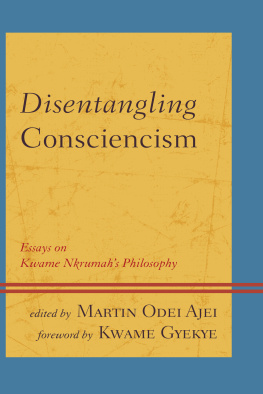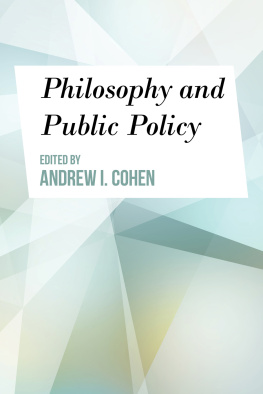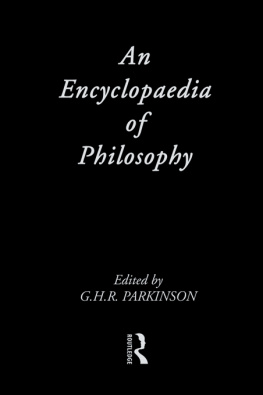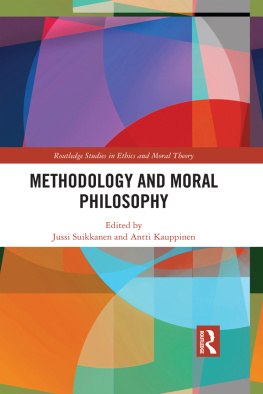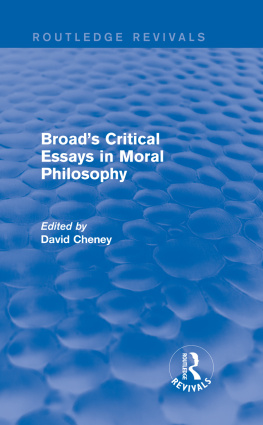Verna V. Gehring - Philosophical Dimensions of Public Policy
Here you can read online Verna V. Gehring - Philosophical Dimensions of Public Policy full text of the book (entire story) in english for free. Download pdf and epub, get meaning, cover and reviews about this ebook. year: 2002, publisher: Transaction Publishers, genre: Science / Politics. Description of the work, (preface) as well as reviews are available. Best literature library LitArk.com created for fans of good reading and offers a wide selection of genres:
Romance novel
Science fiction
Adventure
Detective
Science
History
Home and family
Prose
Art
Politics
Computer
Non-fiction
Religion
Business
Children
Humor
Choose a favorite category and find really read worthwhile books. Enjoy immersion in the world of imagination, feel the emotions of the characters or learn something new for yourself, make an fascinating discovery.
- Book:Philosophical Dimensions of Public Policy
- Author:
- Publisher:Transaction Publishers
- Genre:
- Year:2002
- Rating:5 / 5
- Favourites:Add to favourites
- Your mark:
Philosophical Dimensions of Public Policy: summary, description and annotation
We offer to read an annotation, description, summary or preface (depends on what the author of the book "Philosophical Dimensions of Public Policy" wrote himself). If you haven't found the necessary information about the book — write in the comments, we will try to find it.
At the mid-point of the twentieth century, many philosophers in the English-speaking world regarded political and moral philosophy as all but moribund. Thinkers influenced by logical positivism believe that ethical statements are merely disguised expressions of individual emotion lacking propositional force, or that the conditions for the validation of ethical statements could not be specified, or that their content, however humanly meaningful, is inexpressible.
Philosophical Dimensions of Public Policy presents thirty-four articles written by research scholars numerous fields-philosophy, political theory, medicine, law, biology, economics, ecology and sociology-treating a broad range of topics in practical philosophy. The Institute for Philosophy and Public Affairs has been home for these ideas, pioneering a distinctive method of conducting inquiry into the moral dimensions of public life, and contributing to public discussion and deliberation. Members of the Institute reject the idea that public philosophy means reaching into the philosophers tool-kit and applying prefabricated theories to particular problems. They set in motion a dialogue between the distinctive moral features of practical problems and the more general moral theories or considerations that seem most likely to elucidate these problems.
The volume is divided into five areas: Politics, Civic Life, and Moral Education; Diversity, Identity, and Equal Opportunity; Human Rights, Development Ethics, and International Justice; Biotechnology, Genetic Research, and Health Policy; and Natural Environment, Human Communities.
Philosophical Dimensions of Public Policy presents empirical data and philosophical arguments with the intention of informing public policy and public deliberation. Scholars as well as graduate and undergraduate students are certain to find it useful to their research work.
Verna V. Gehring: author's other books
Who wrote Philosophical Dimensions of Public Policy? Find out the surname, the name of the author of the book and a list of all author's works by series.

